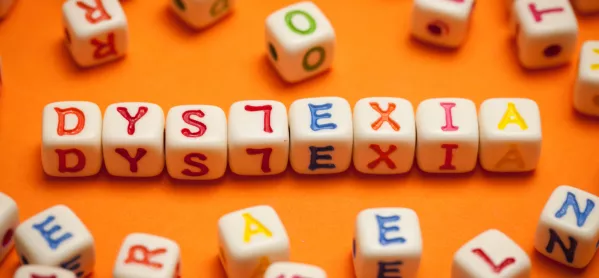My name is Ceri and I am a dyslexic teacher.
Why am I writing about this now? Well, all this online teaching has caused a few challenges and perhaps made some students more aware of the fact that their teacher is muddling up her words and spelling things a bit strangely.
You see, my brain works much faster than my hand typing and I am responding to questions with online chat groups perhaps without my normal calm and prepared manner.
I am suddenly feeling very exposed. However, whereas in the past this would have been daunting, now I am able to take this as a part of who I am - personally and professionally. It wasn’t always like this though.
Challenges for teachers with dyslexia
My first report season was a nightmare. We wrote each report slip individually and the system was that any mistakes would be circled (in red pen) and then pinned up on the notice board.
One morning I came in to work early to find the whole notice board covered in my reports with red pen everywhere. I took them down, went home (I lived on campus) and cried. I was embarrassed. I never told anyone about my dyslexia.
I wish I had. I wish I had gone to a member of the SLT and either got help or pointed out that perhaps putting the reports in my pigeon hole would have been kinder. Or that the member of staff who obviously enjoyed pinning over 40 of my reports on the notice board was engaging in bullying.
After all, while I was well aware that it was important to know what I was doing wrong so I could improve, to be publicly shamed like this wasn’t right.
This isn’t an isolated case, but probably the one that had the most profound influence on what type of teacher and leader I wanted to be.
Growing stronger
Since then I have learned tricks to help. For example, I now know that if I read something within 24 hours of writing, I will still read it as I think it should be, so I won’t spot missing words.
But I am also less embarrassed when I incorrectly spell a word or miss out words.
In fact, I often point out to students who see dyslexia as a reason to give up, that it means that unlike some others, we know our weakness, and we can work around this.
Our weakness is not ugly like a bully.
I am guessing that many other people can come up with examples of how their weakness was used against them, to belittle them, and I hope that they, too, have used this to make themselves a better person.
As a leader, I try to understand that everyone is different and everyone will excel and struggle with different tasks. If they cannot admit when they are struggling then something is wrong.
Of course, there are moments when my inner voice creeps in with doubt, which is why my pieces published by Tes are such an achievement: not only does it feel like others want to hear about my point of view or experience, but it also shows that dyslexia is no barrier to achieving whatever you want - including writing and being published.
Ceri Stokes is assistant head (DSL) at Kimbolton School in Cambridgeshire. She tweets @CeriStokes




